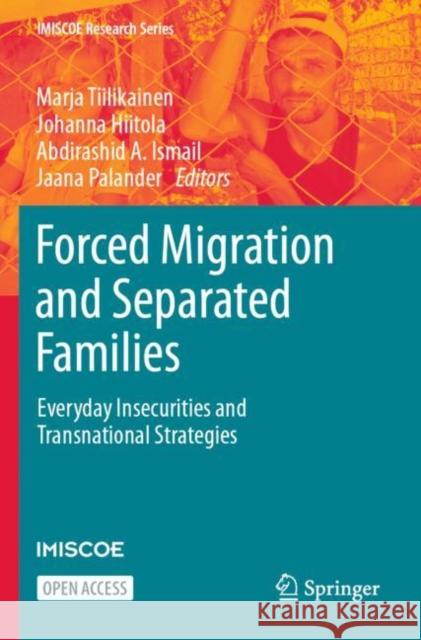Forced Migration and Separated Families: Everyday Insecurities and Transnational Strategies » książka
Forced Migration and Separated Families: Everyday Insecurities and Transnational Strategies
ISBN-13: 9783031249761 / Angielski
Forced Migration and Separated Families: Everyday Insecurities and Transnational Strategies
ISBN-13: 9783031249761 / Angielski
(netto: 156,20 VAT: 5%)
Najniższa cena z 30 dni: 154,18
ok. 16-18 dni roboczych.
Darmowa dostawa!
This open access book examines the impacts and experiences of family separation on forced migrants and their transnational families. On the one hand, it investigates how people with a forced migration background in Europe, the Middle East, and Latin America experience separation from their families, and on the other, how family and kin in the countries of origin or transit are impacted by the often precarious circumstances of their family members in receiving countries. In particular, this book provides new knowledge on the nexus between transnational family separation, forced migration, and everyday (in)security. Additionally, it yields comparative information for assessing the impacts of relevant legislation and administrative practice in a number of national contexts. Based on rich empirical data, including unique cases about South-South migration, the findings in this book are highly relevant to academics in migration and refugee studies as well as policy-makers, legislators and practitioners.
This open access book examines the impacts and experiences of family separation on forced migrants and their transnational families. On the one hand, it investigates how people with a forced migration background in Europe, the Middle East, and Latin America experience separation from their families, and on the other, how family and kin in the countries of origin or transit are impacted by the often precarious circumstances of their family members in receiving countries. In particular, this book provides new knowledge on the nexus between transnational family separation, forced migration, and everyday (in)security. Additionally, it yields comparative information for assessing the impacts of relevant legislation and administrative practice in a number of national contexts. Based on rich empirical data, including unique cases about South-South migration, the findings in this book are highly relevant to academics in migration and refugee studies as well as policy-makers, legislators and practitioners.











